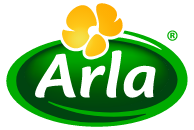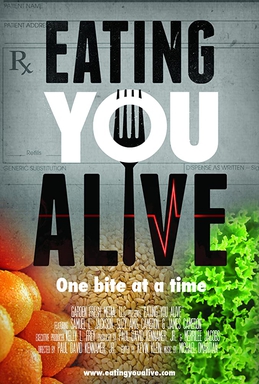Plant food means fertilizer. Plant food may also refer to:
- Bath salts (drug), which may be mislabeled as "plant food".
- Plant-based diet
- Give Yourself Goosebumps: You're Plant Food!
Plant food means fertilizer. Plant food may also refer to:

Food is any substance consumed by an organism for nutritional support. Food is usually of plant, animal, or fungal origin and contains essential nutrients such as carbohydrates, fats, proteins, vitamins, or minerals. The substance is ingested by an organism and assimilated by the organism's cells to provide energy, maintain life, or stimulate growth. Different species of animals have different feeding behaviours that satisfy the needs of their metabolisms and have evolved to fill a specific ecological niche within specific geographical contexts.

Yogurt is a food produced by bacterial fermentation of milk. Fermentation of sugars in the milk by these bacteria produces lactic acid, which acts on milk protein to give yogurt its texture and characteristic tart flavor. Cow's milk is most commonly used to make yogurt. Milk from water buffalo, goats, ewes, mares, camels, and yaks is also used to produce yogurt. The milk used may be homogenized or not. It may be pasteurized or raw. Each type of milk produces substantially different results.

A meat alternative or meat substitute, is a food product made from vegetarian or vegan ingredients, eaten as a replacement for meat. Meat alternatives typically approximate qualities of specific types of meat, such as mouthfeel, flavor, appearance, or chemical characteristics. Plant- and fungus-based substitutes are frequently made with soy, but may also be made from wheat gluten as in seitan, pea protein as in the Beyond Burger, or mycoprotein as in Quorn. Alternative protein foods can also be made by precision fermentation, where single cell organisms such as yeast produce specific proteins using a carbon source; as well as cultivated or laboratory grown, based on tissue engineering techniques.
Burger or Burgers may refer to:

A veggie burger is a hamburger made with a patty that does not contain meat, or the patty of such a hamburger. The patty may be made from ingredients like beans, nuts, grains, seeds, or fungi such as mushrooms or mycoprotein.

A plant-based diet is a diet consisting mostly or entirely of plant-based foods. Plant-based diets encompass a wide range of dietary patterns that contain low amounts of animal products and high amounts of fiber-rich plant products such as vegetables, fruits, whole grains, legumes, nuts and seeds. They do not need to be vegan or vegetarian, but are defined in terms of low frequency of animal food consumption.

Plant milk is a plant beverage with a color resembling that of milk. Plant milks are non-dairy beverages made from a water-based plant extract for flavoring and aroma. Plant milks are consumed as alternatives to dairy milk, and may provide a creamy mouthfeel.

Arla Foods Ltd is a major dairy products company in the United Kingdom, based in Leeds, and a subsidiary of the Arla Foods Group, which is owned by its farmer owners in seven countries including the UK.

Food for Life Global is a non-profit vegan food relief organization founded in 1995 to serve as the headquarters for Food for Life projects. Food for Life Global has its roots in ISKCON dating back to 1974. It is a completely independent non-profit organization that supports the work of Food for Life projects both inside and outside of ISKCON. Its network of 291 affiliates span the globe, with projects occupying over 65 countries. Volunteers provide over 1 million free meals daily. Food For Life engages in various sorts of hunger relief, including outreach to the homeless, provision for disadvantaged children throughout India, and provision for victims of natural disasters around the world.

Pandanus amaryllifolius is a tropical plant in the Pandanus (screwpine) genus, which is commonly known as pandan. It has fragrant leaves which are used widely for flavouring in the cuisines of Southeast Asia. It is also featured in some South Asian cuisines and in Hainanese cuisine from China.

Sustainable diets are "dietary patterns that promote all dimensions of individuals’ health and wellbeing; have low environmental pressure and impact; are accessible, affordable, safe and equitable; and are culturally acceptable". These diets are nutritious, eco-friendly, economically sustainable, and accessible to people of various socioeconomic backgrounds. Sustainable diets attempt to address nutrient deficiencies and excesses, while accounting for ecological phenomena such as climate change, loss of biodiversity and land degradation. These diets are comparable to the climatarian diet, with the added domains of economic sustainability and accessiblity.

Michael Herschel Greger is an American physician, author, and professional speaker on public health issues, best known for his advocacy of a whole-food, plant-based diet, and his opposition to animal-derived food products.

Forks Over Knives is a 2011 American documentary film which argues that avoiding animal products and Ultra-processed foods, and instead eating a whole-food, plant-based diet, may serve as a form of chronic illness intervention.
Cultivation may refer to:

Vegan cheese is a category of non-dairy, plant-based cheese analogues. Vegan cheeses range from soft fresh cheeses to aged and cultured hard grateable cheeses like plant-based Parmesan. The defining characteristic of vegan cheese is the exclusion of all animal products.
Impossible Foods Inc. is a company that develops plant-based substitutes for meat products. The company's signature product, the Impossible Burger, was launched in July 2016 as a vegan alternative to beef hamburger.
BOSH! is a duo of British vegan chefs from Sheffield consisting of Henry Firth and Ian Theasby. They rose to fame in 2016 with the launch of their YouTube channel, and have gone on to host the ITV1 television programme Living on the Veg and author a number of books. Their eponymous vegan cookbook ranked fifth in the Sunday Times Bestsellers chart in 2018, and is among the top 50 best-selling UK cookbooks of all time.

Eating You Alive is a 2018 health documentary film about why Americans are suffering from chronic diseases such as cardiovascular disease, diabetes, obesity, autoimmune disease, among other diseases, and whether the outcome can be changed.
Gemma Newman known as the Plant Power Doctor is a British medical doctor, nutritionist, author and advocate of whole food plant-based nutrition.

Alan Desmond is an Irish consultant gastroenterologist and writer known for his advocacy of plant-based nutrition.